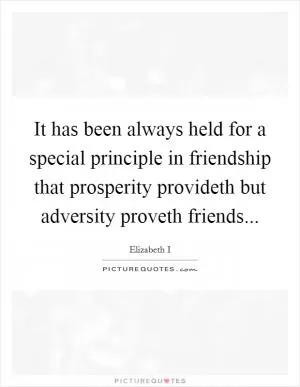It is good to jest, but not to make a trade of jesting

It is good to jest, but not to make a trade of jesting
Queen Elizabeth I of England was known for her quick wit and sharp tongue, often engaging in jesting and banter with her courtiers and advisors. She was a master of wordplay and had a keen sense of humor, using jesting as a way to entertain and engage those around her. However, Elizabeth also understood the importance of maintaining a sense of decorum and dignity, especially as a monarch.The phrase "It is good to jest, but not to make a trade of jesting" perfectly encapsulates Elizabeth's approach to humor and wit. She recognized the value of humor in building relationships and fostering camaraderie, but she also understood the dangers of using jesting as a means of manipulation or deceit. Elizabeth was a shrewd and calculating ruler, and she knew that jesting could be a powerful tool in her arsenal, but only if used judiciously and with caution.
In her court, Elizabeth encouraged a culture of wit and repartee, where cleverness and humor were prized qualities. She surrounded herself with witty and intelligent courtiers who could match her in jesting and banter, creating an atmosphere of lively conversation and intellectual stimulation. However, Elizabeth also made it clear that there were boundaries that should not be crossed, and that jesting should never be used to undermine or belittle others.
Elizabeth's approach to jesting was a reflection of her larger philosophy of leadership. She believed in the power of persuasion and charm, using humor and wit to win over her subjects and allies. However, she also understood the importance of maintaining a sense of dignity and authority, and she knew that jesting could be a double-edged sword if not wielded carefully.












 Friendship Quotes
Friendship Quotes Love Quotes
Love Quotes Life Quotes
Life Quotes Funny Quotes
Funny Quotes Motivational Quotes
Motivational Quotes Inspirational Quotes
Inspirational Quotes